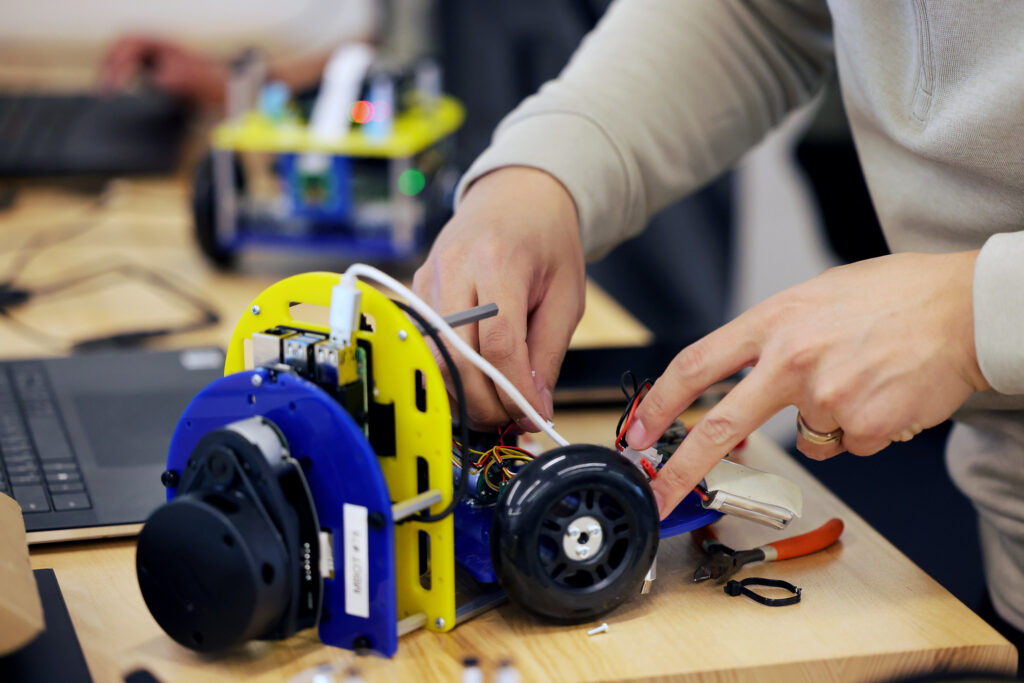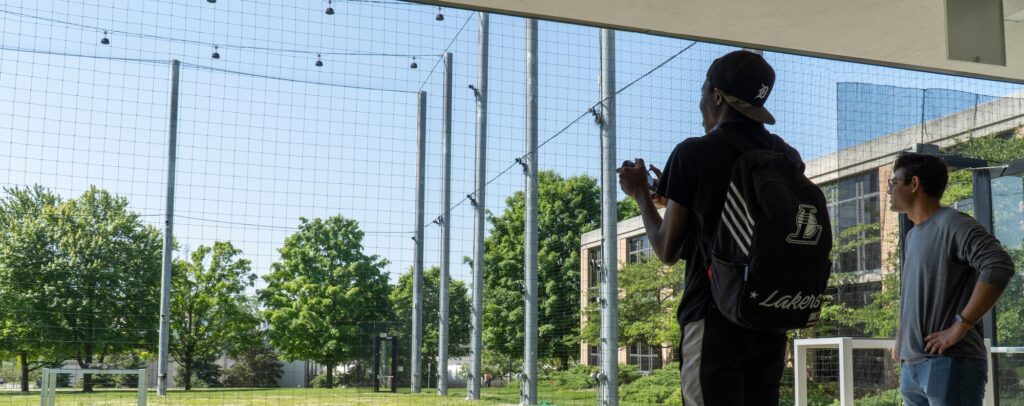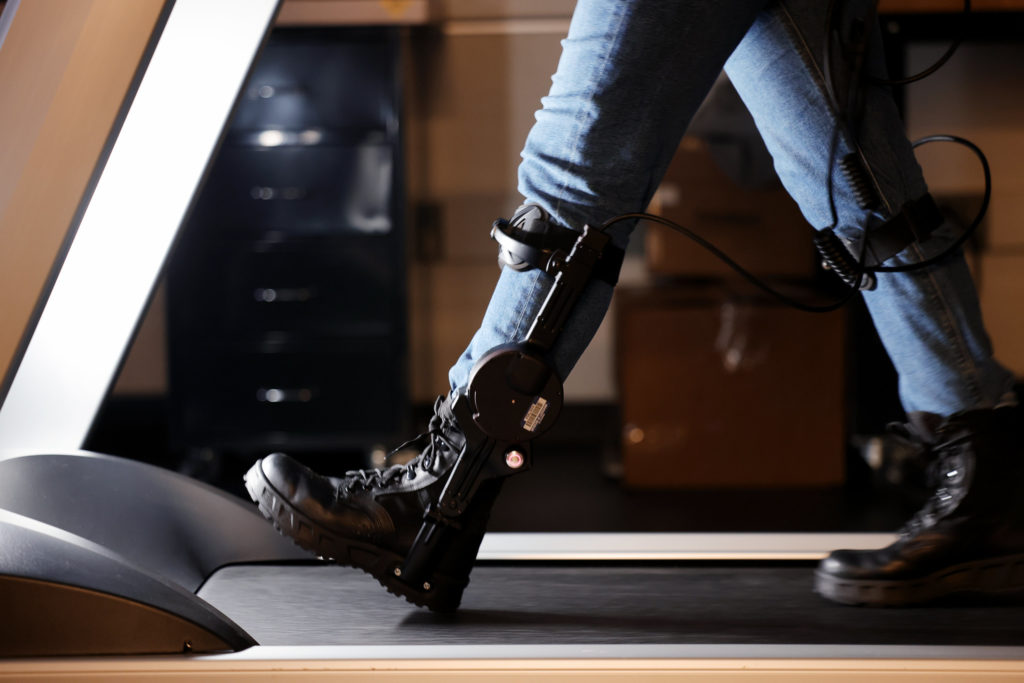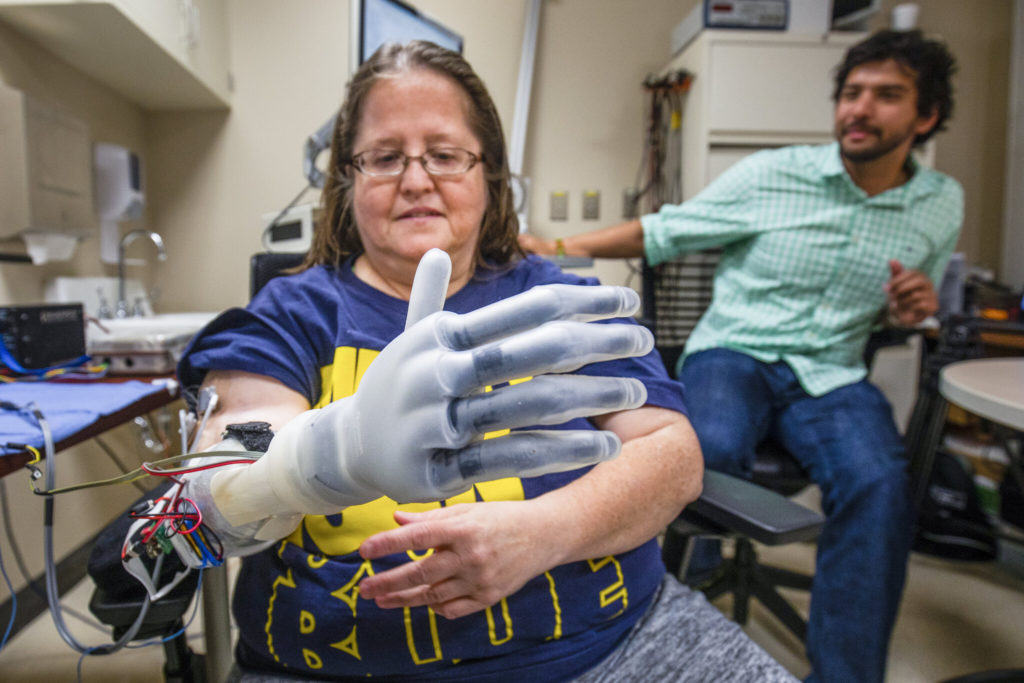The first Robotics Alumni Award winner
September 28, 2022
The Robotics Department announced its first Alumni Merit Award recipient last week: Meghan Dailey.
Dailey joined the inaugural Robotics graduate class in 2014, taking a risk at the time with the new Robotics graduate program. The Robotics Department invited Dailey, now a machine learning specialist in Advanced Research Computing under ITS at U-M, back on homecoming to present the alumni award and learn about her latest work.
Continue reading ⇒


